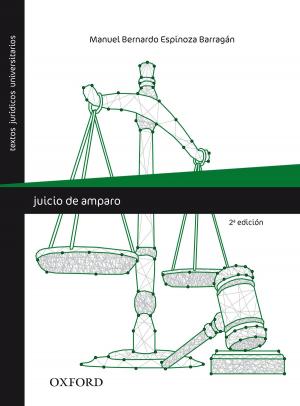Jonas of Bobbio and the Legacy of Columbanus
Sanctity and Community in the Seventh Century
Nonfiction, History, Ancient History, Rome, Medieval, Religion & Spirituality| Author: | Alexander O'Hara | ISBN: | 9780190858025 |
| Publisher: | Oxford University Press | Publication: | June 1, 2018 |
| Imprint: | Oxford University Press | Language: | English |
| Author: | Alexander O'Hara |
| ISBN: | 9780190858025 |
| Publisher: | Oxford University Press |
| Publication: | June 1, 2018 |
| Imprint: | Oxford University Press |
| Language: | English |
Jonas of Bobbio, writing in the mid seventh century, was not only a major Latin monastic author, but also an historical figure in his own right. Born in the ancient Roman town of Susa in the foothills of the Italian Alps, he became a monk of Bobbio, the monastery founded by the Irish exile Columbanus, soon after his death in 615. He became the archivist and personal assistant to successive Bobbio abbots, travelled to Rome to obtain the first papal privilege of immunity, and served as a missionary priest on the northern borderlands of the Frankish kingdom. He spent the rest of his life in Merovingian Gaul as abbot of the double monastic community of Marchiennes-Hamage, where he wrote his Life of Columbanus, one of the most influential works of early medieval hagiography. This book, the first major study devoted to Jonas of Bobbio, his corpus of three saints' Lives, and the Columbanian familia, explores the development of the Columbanian monastic network and its relationship to its founder. The Life of Columbanus was written following a period of crisis within the Columbanian familia and it was in response to this crisis that the Bobbio community in Lombard Italy commissioned Jonas to write the work. Alexander O'Hara presents the Life of Columbanus as a subtle and clever critique of the changes and crises that had taken place in the monastic communities since Columbanus's death. It also considers the life of Jonas as reflecting many of the changing political, cultural, and religious circumstances of the seventh century, and his writings as instrumental in shaping new concepts of sanctity and community. The result of the study is a unique perspective on the early medieval Age of Saints and the monastic and political worlds of Merovingian Gaul and Lombard Italy in the seventh century.
Jonas of Bobbio, writing in the mid seventh century, was not only a major Latin monastic author, but also an historical figure in his own right. Born in the ancient Roman town of Susa in the foothills of the Italian Alps, he became a monk of Bobbio, the monastery founded by the Irish exile Columbanus, soon after his death in 615. He became the archivist and personal assistant to successive Bobbio abbots, travelled to Rome to obtain the first papal privilege of immunity, and served as a missionary priest on the northern borderlands of the Frankish kingdom. He spent the rest of his life in Merovingian Gaul as abbot of the double monastic community of Marchiennes-Hamage, where he wrote his Life of Columbanus, one of the most influential works of early medieval hagiography. This book, the first major study devoted to Jonas of Bobbio, his corpus of three saints' Lives, and the Columbanian familia, explores the development of the Columbanian monastic network and its relationship to its founder. The Life of Columbanus was written following a period of crisis within the Columbanian familia and it was in response to this crisis that the Bobbio community in Lombard Italy commissioned Jonas to write the work. Alexander O'Hara presents the Life of Columbanus as a subtle and clever critique of the changes and crises that had taken place in the monastic communities since Columbanus's death. It also considers the life of Jonas as reflecting many of the changing political, cultural, and religious circumstances of the seventh century, and his writings as instrumental in shaping new concepts of sanctity and community. The result of the study is a unique perspective on the early medieval Age of Saints and the monastic and political worlds of Merovingian Gaul and Lombard Italy in the seventh century.















